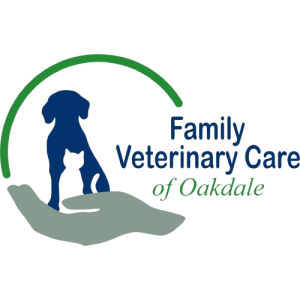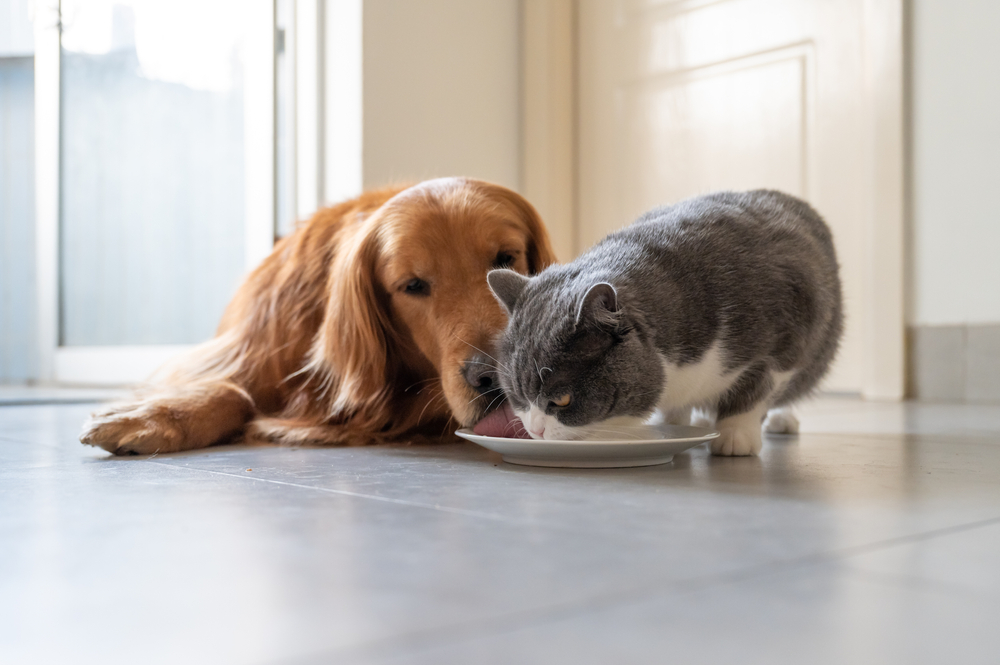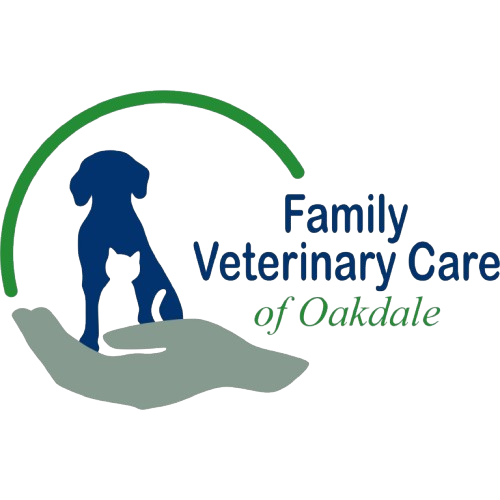There’s no shortage of advice when it comes to feeding your pet, but much of the information circulating online and in conversations can be misleading. Pet nutrition myths can lead to poor dietary decisions, which may affect your pet’s health. At Family Veterinary Care of Oakdale, we are committed to providing you with accurate, science-backed information to help you make informed choices about your pet’s diet. Below, we address some of the most common myths surrounding pet nutrition.
1. Myth: Grain-Free Diets Are Healthier for All Pets
Grain-free diets have become increasingly popular, with many people believing that grains are bad for their pets. However, the truth is that most pets can digest grains without any issues, and grains can provide essential nutrients like protein, fiber and vitamins. Grain-free diets are not inherently better for pets, and in fact, there have been concerns about a potential, yet unsubstantiated link between grain-free diets and heart disease in dogs.
- The Truth: Grains are not harmful to most pets. Consult with your veterinarian before switching your pet to a grain-free diet.
2. Myth: By-Products Are Low-Quality Ingredients
Some pet owners avoid foods that contain by-products, believing they are low-quality or harmful. However, by-products can include highly nutritious parts of the animal, such as organ meats, which are rich in essential vitamins and minerals. The use of by-products is not a reflection of poor quality when they are responsibly sourced.
- The Truth: By-products can provide valuable nutrients for your pet.
3. Myth: Raw Diets Are Best for Pets
Raw diets have gained popularity, with advocates claiming they are more natural for pets. However, raw diets can pose significant risks, including the potential exposure of bacteria such as salmonella and E. coli to the human members of your family. Additionally, unless the raw diet comes from a reputable source or recipe, it may lack proper amounts of essential nutrients leading to deficiencies or imbalances.
- The Truth: Commercially prepared pet foods are designed to provide complete and balanced nutrition, meeting all of your pet’s dietary needs safely and effectively.
4. Myth: Table Scraps Are Fine for Pets
Feeding pets table scraps is a common practice, but it can lead to serious health issues. Many human foods are high in fat, salt, and sugar, which can be harmful to pets. Certain foods, such as onions, garlic, chocolate, and grapes, are toxic to pets and should never be given to pets.
- The Truth: Regularly feeding your pet table scraps can result in digestive problems, obesity, pancreatitis and dangerous ingredient toxicity.
5. Myth: Natural or Organic Pet Foods Are Always Better
Many pet foods are marketed as “natural” or “holistic,” but these terms actually have no legal meaning. Other words, like “organic” can be used without meaning if they aren’t accompanied by the official “USDA organic” symbol. These terms focus mostly on ingredient quality and types of ingredients allowed in the food, and not the nutritional content of the food. Don’t be swayed by marketing terms without understanding whether it satisfies your pet’s nutritional needs.
- The Truth: Focus on finding a food that meets your pet’s nutritional requirements rather than getting caught up in buzzwords like “natural” or “organic.”
Why Proper Pet Nutrition Is Important:
A well-balanced, nutritionally complete diet is vital for your pet’s overall health and well-being. Following inaccurate nutrition advice can lead to poor dietary habits and, ultimately, health problems. That’s why it’s crucial to rely on trusted veterinary advice when it comes to feeding your pet.
Nutrition Is Confusing, But We Are Here For You:
Pet nutrition myths are widespread, and they can lead to confusion about what’s best for your pet’s diet. By debunking these myths and focusing on accurate, science-based information, you can make the best choices for your pet’s health. If you have any questions or concerns about your pet’s diet, reach out to Family Veterinary Care of Oakdale for personalized advice or a nutrition recommendation.










Leave A Comment